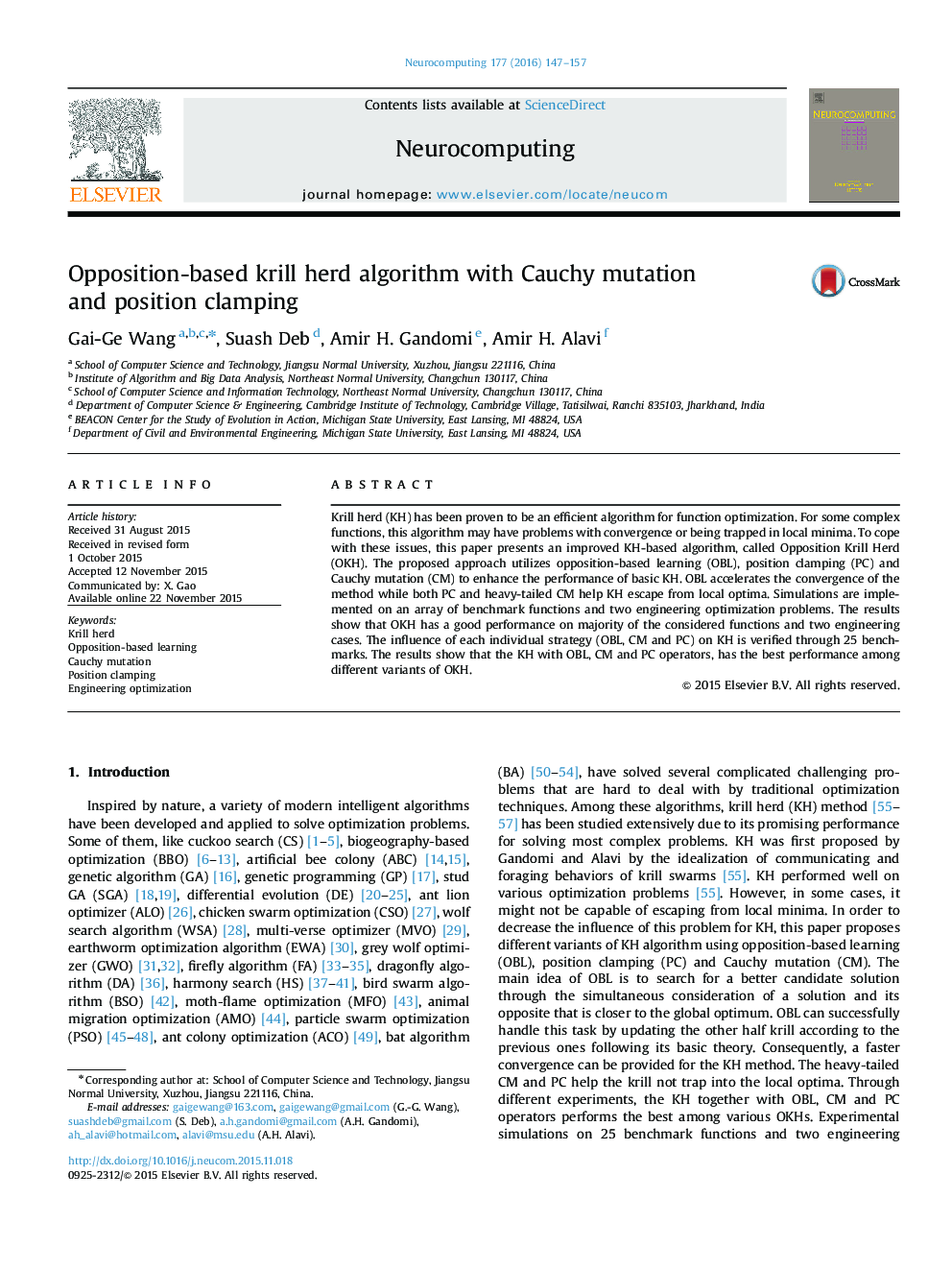| Article ID | Journal | Published Year | Pages | File Type |
|---|---|---|---|---|
| 408956 | Neurocomputing | 2016 | 11 Pages |
Krill herd (KH) has been proven to be an efficient algorithm for function optimization. For some complex functions, this algorithm may have problems with convergence or being trapped in local minima. To cope with these issues, this paper presents an improved KH-based algorithm, called Opposition Krill Herd (OKH). The proposed approach utilizes opposition-based learning (OBL), position clamping (PC) and Cauchy mutation (CM) to enhance the performance of basic KH. OBL accelerates the convergence of the method while both PC and heavy-tailed CM help KH escape from local optima. Simulations are implemented on an array of benchmark functions and two engineering optimization problems. The results show that OKH has a good performance on majority of the considered functions and two engineering cases. The influence of each individual strategy (OBL, CM and PC) on KH is verified through 25 benchmarks. The results show that the KH with OBL, CM and PC operators, has the best performance among different variants of OKH.
